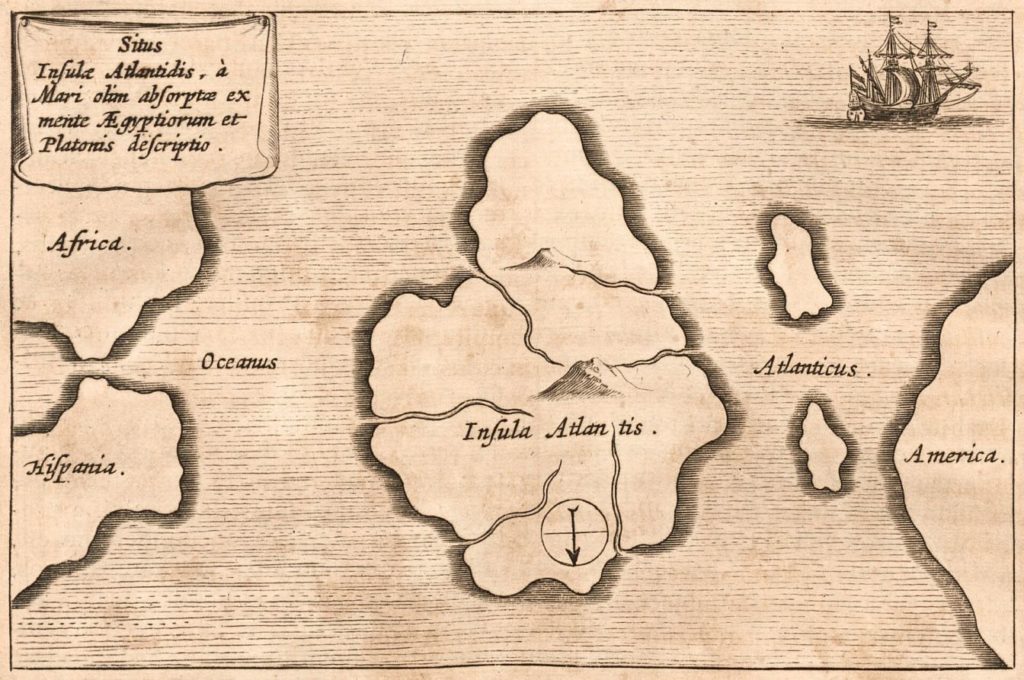
The philosopher Ibn Rushd tried to rescue philosophy and wrote his famous work The Incoherence of the Incoherence refuting the views of al-Ghazālī. But unfortunately reason could not withstand the spades of al-Ash‘arī, al-Ghazālī and Ibn al-Jawzī. The domination of the knights of reason and the scholastic theologians came to an end, and naql overtook ‘aql.
MUSLIMS BEGAN TO PREOCCUPY themselves with trivial matters. In the fourth chapter of his work Iḥyā ‘Ulūm al-Dīn (The Revival of the Religious Sciences’) in the section Ādāb al-Tilāwa (‘The Literature of Recital’) al-Ghazālī notes that ‘the Qur’ān contains seventy-seven thousand sciences, and a further two hundred sciences’. Al-Suyūṭī quoted the judge Abū Bakr ibn al-‘Arabī as mentioning in his work Qānūn al-Ta‘wīl (‘The Law on Interpretation’), that
the sciences of the Qur’ān are fifty and four hundred and seven thousand and seventy thousand sciences, that is, the number of words of the Qur’ān should be multiplied by four, since each word has four separate dimensions to it.
That is, in the Qur’ān there are 77,450 sciences (my congratulations are therefore due to Zaghloul al-Najjār and Shaykh al-Zindānī).[i]
The death of reason ushered in the era of decadence in the Islamic world. Jurists began to focus on the sanad – the train of transmission – as opposed to content when studying and passing down hadiths or even historical accounts. Once having verified the sanad from so-and-so from so-and-so, they took no interest in the content of the text or the story, no matter how contrary they might be to reason. We find, for example, this hadith:
From Sufyān from Al-A‘mash from Abū Sufyān from Jābir who said: a fever sought permission from the Prophet (peace be upon him). He replied: “Who are you?” “A fever”. “Do you know the people of Qubā’?” The fever replied: “Yes”. He said: “Go to them”. So the fever went among them and they suffered severely from it. They then complained about this to the Messenger of Allah (peace be upon him) who said: “If you wish I shall call upon Allah and He will relieve you of it. But if you wish you may retain it as an expiation and a purification”. They said” “Let us have keep it as an expiation and a purification”.[ii]
Any human being with an iota of intellect cannot believe that a fever, which is a rise in body temperature for the purpose of killing microbes that have entered the body, can talk to the Messenger of Allah and know the whereabouts of the people of Qubā’. Nonetheless, what was important to them was that the sanad was sound.
Since reason was mummified by the Ash‘arīs, Islamic jurists tried to delude people that they still possessed minds
In another example, al-Dimashqī, the author of Shadharāt al-Dhahab, says that Sa‘īd ibn Jubayr recited the entire Qur’ān in one rak‘a in the sacred mosque at Makka[iii] Now if we assume that reading one verse takes ten seconds, and the Qur’ān contains about 6,300 verses, we calculate that reading the entire Qur’ān would take at least 18 hours. Is it conceivable that this aged shaykh could have stood for eighteen hours in one rak‘a? Didn’t he need to urinate or drink?
Ibn Qayyim al-Jawziyya says this about the Jews:
Their ancestors were killers of prophets: they killed Zakaryā and his son Yaḥyā and many prophets. In one day they slew seventy prophets and set up markets as usual at the end of the day as if they had done nothing [iv]
Where did they find seventy prophets to kill in one day? And where was God, does He not defend His prophets?
Since reason was mummified by the Ash‘arīs, Islamic jurists tried to delude people that they still possessed minds.They came up with what they called the science of al-jarḥ wal-ta‘dīl (‘Injuring and justifying’) which tested the probity of the hadith reporters as an indicator of their reliability.[v] We do not know how they were able in the eighth century to prove that so-and-so, who lived in the sixth century, was trustworth, so we have to simply trust that he actually heard this hadith from Muḥammad. To be honest, these hadith ‘scholars’ were not the first to come up with this type of tale. Plato tells a story about a young Greek man who spoke about the lost continent of Atlantis:
The young Critias recounted that when he was ten years old he heard from his grandfather who was ninety years old, who in turn heard the story from his father, who heard the story from the historian Solon, who had heard it from the priests of Egypt …
The story in question tells of a legendary continent of Atlantis that was located west of the Strait of Gibraltar, and which had a very advanced civilization, greater than what Greece knew at that time. Divers and scientists have been searching for this Atlantis since the story emerged more than 2,500 years ago. There is no trace of this lost continent.
Is the tale of the jurists of Islam any different from the tale of that boy in Plato’s account? Reason naturally cannot accept that al-Bukhārī, who lived more than one hundred and fifty years after Muḥammad’s death, was able to document all these hadiths and claim that the person who told him the hadith swore that he heard the same hadith from so-and-so, who in turn swore, before he died, that he had heard the hadith from so-and-so, who at that time was already dead, and so on until getting back to Abū Hurayra who swore that he had heard this hadith from Muḥammad himself.
Were it not for these irrational hadiths, we would not have been plagued today by bombings and the oppression of women
It is enough to know the history of Abū Hurayra to conclude that he was a charlatan who composed hadiths in order to be invited to Mu‘āwiya’s sumptuous dinner tables. Were it not for these irrational hadiths, we would not have been plagued today by bombings and the oppression of women in the name of a purified Sunna, something which is nothing more than a series of spider webs woven by Abū Hurayra.
If we leave all these spider webs and look at the Qur’ān itself, we find there a contradiction that puzzles the mind. For example, here we find the Qur’ān speaking about Paradise:
Reclining therein upon couches, they will find there neither (heat of) a sun nor bitter cold [Qur’ān LXXVI (al-Insān), 13]
But it then in the next verse retracts this and tells us:
The shade thereof is close upon them and the clustered fruits thereof bow down.
If heaven has no sun, where did the shade closing down upon them come from? Don’t shadows form when sunlight strikes an object standing between it and the ground or a wall? But, of course, reason has no place to stand alongside the verses of the Qur’ān.
He then tells us,
Assemble those who did wrong, together with their wives and what they used to worship besides Allah, and lead them to the path to hell [Qur’ān XXXVII (al-Ṣāffāt), 23]
What is the fault of the wives here? The wife of the oppressor does not necessarily have to be a wrongdoer, and in fact the Qur’ān gave us an example of this in Pharaoh’s wife when she said:
My Lord! Build for me a home with thee in the Garden, and deliver me from Pharaoh and his work [Qur’ān LXVI (al-Tarḥīm), 11]
The Qur’ān also tells us that us a burdened soul cannot bear the burden of another.[vi] Why, then, did He command His angels to assemble those who did wrong, together with their wives into hell?
Is there any respect for reason in Islam, or are the teachings of Islam merely commands
These are just a few examples of the contradictions in the Qur’ān. Is there any respect for reason in Islam, or are the teachings of Islam merely commands, and a believer cannot expect any choice in their affairs as to what Allah and His Messenger have decreed?
The Islamists’ claim that the Qur’ān urges the use of reason is hollow and unsubstantiated, just like their claim that the first verse revealed from the Qur’ān was the verse beginning with iqra’ (‘read’) and that therefore the Qur’ān exhorts knowledge and reading. If, 1,400 years after the revelation of that verse, more than sixty percent of Muslims are still illiterate, what happened to the urge to learn to read and acquire knowledge?
If you need a sample of the thinking of Muslims and their use of reason, please consider this paragraph from a Palestinian website called ‘The Arab Institute’, whose authors claim that it ‘specializes in modernizing Islamic civilization and freeing it of historical and sectarian shackles.’

Suggested Reading
On this enlightened site, someone claiming to be a journalist and a writer wrote the following in response to an article of mine entitled The God of Heaven is a Failed Engineer:
Have you pondered on your being created in your body, on its shape, its nose, ear, height and hair… Have you looked up at the sky, the constellations of the stars, the planets, the sun and the moon… Have you looked at the animals and the birds… Have you looked at the mountains and trees… Shame on you to say these words; pray to God to guide you before it is too late. If you will not be guided aright, pray that God will shame you both in this world and the next.
This is how Muslims reflect on the verses of the Qur’ān and on the creation of the heavens and the earth.
[i] Dr. Zaghloul al-Najjār and Shaykh al- Zindānī are celebrated for their claims to modern sciences being revealed as pre-existing in the Qur’ān. (Ed.)
[ii] Al-Bghdādī, تاريخ بغداد, Vol. 3, p.29.
[iii] Al-Dimashqī, شذرات الذهب, Vol. 1, p.108.
[iv] Ibn Qayyim al-Jawziyya, هداية الحيارى, p.18.
[v] See Glossary: ‘Al-Jarḥ wal-Taʽdīl’.
[vi] Qur’ān XXXV (Fāṭir), 18.
Main image: Athanasius Kircher’s map of Atlantis, placing it in the middle of the Atlantic Ocean, from Mundus Subterraneus, published in Amsterdam in 1669.
